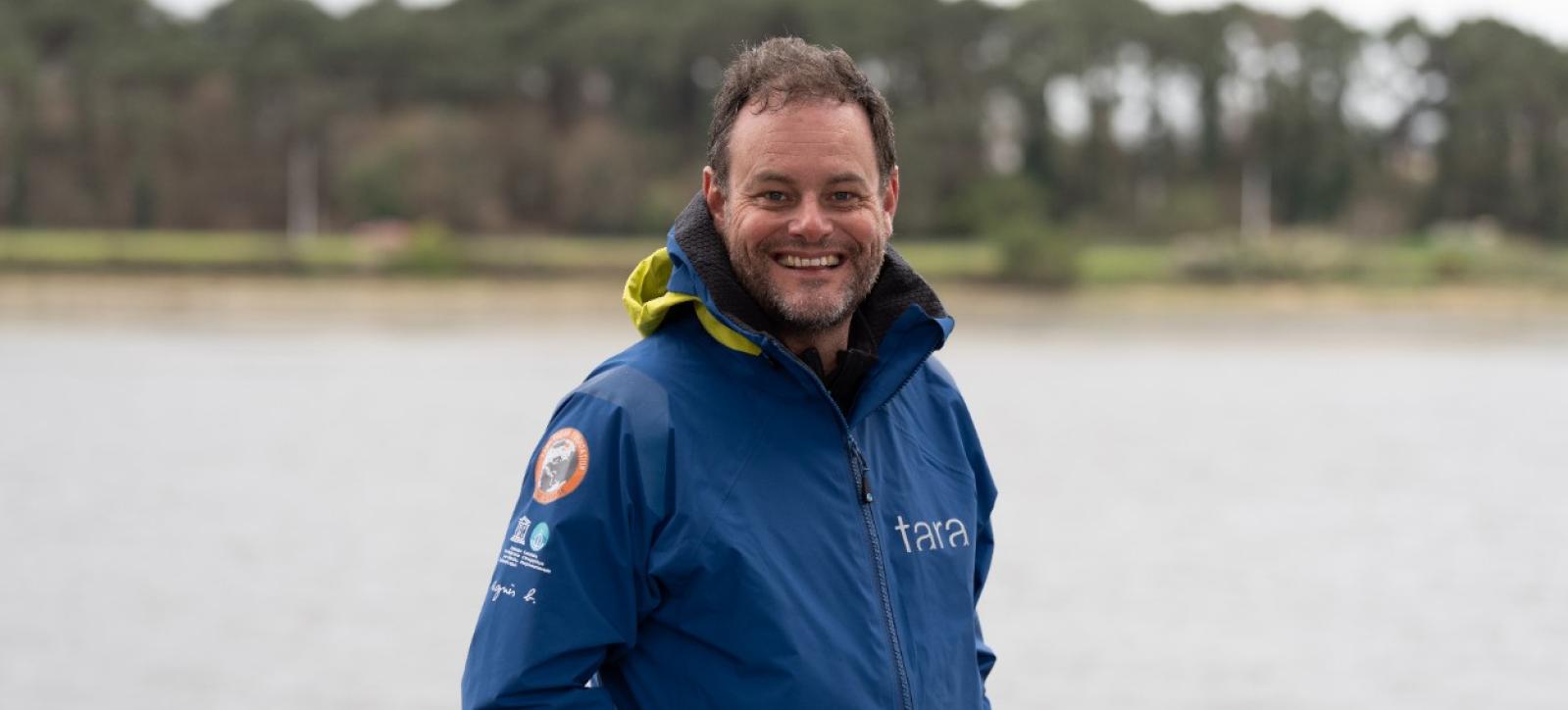The Bougainville mission came about thanks to a meeting between Colomban de Vargas and Admiral Christophe Prazuck, Director of the Ocean Institute, a part of the Sorbonne University in Paris, eighteen months ago. This mission was born of an ambitious idea: take continuous measurements of the ocean’s microbiome, across the globe.
“When it comes to measuring the physics and chemistry of our global environment, we have several means at our disposal today, right from satellites to floating robots. On the other hand, no such equivalent exists to take continuous measurements of the kind of invisible life we had discovered in the course of the Tara expeditions”, says the Swiss biologist, who was brought up watching Commander Cousteau documentaries.
“Tens of thousands of different species including viruses, bacteria, archaea and eukaryotes populate just a few litres of seawater...Picture a veritable jungle in a bucket! Except that these fast-moving life forms, propelled by the currents running through the waters, are omnipresent in our planet’s boundless oceans. With Tara, we were able to capture the very first global photo of this life form. We now need to put the film together: understand how these life forms move, interact and evolve over space and time. We are absolutely convinced that this microbiome has major effects on the macrobiome”.
Now comes the question, how does one go about modifying the scale to make the film?
Fairly affordable and relatively easy to implement “frugal” tools have been specially developed for the Bougainville mission which is a part of Plankton Planet, a program on a larger scale also directed by Colomban de Vargas. Four fresh graduates from the Sorbonne University have been selected to participate in this scientific adventure. Trained in taking these measurements, they will join the Naval School of Brest as Volunteer Aspiring Officers (VOA). These very first Biodiversity Officers (VOAB), a status specially created by the French Navy, will then be deployed to the Reunion Island and to Nouméa for a year. Six others will take over in 2025, the first deadline for this mission which by then will have taken measurements at nearly 2000 sites across the globe over a two-year period. All the data collected will be freely accessible to the international scientific community.
Naval Group, partner to the Bougainville mission
“Considering its role as shipbuilder, Naval Group appeared to be a very logical choice for partner”, affirms Colomban de Vargas “The company is de facto engaged in protecting France, the largest marine nation in the world. This desire for geostrategic and environmental protection represents a shared bond between the CNRS, the French Navy, the Sorbonne University in Paris and Naval Group. Perspectives for cooperation are open with other foreign navies: the group’s international reach will help us in fostering these ties.”

